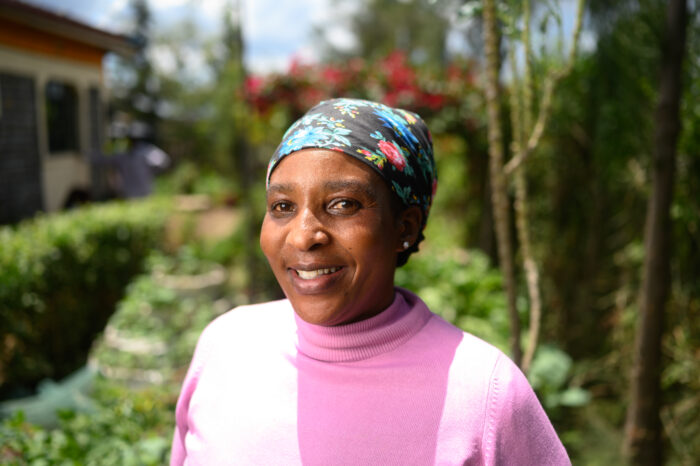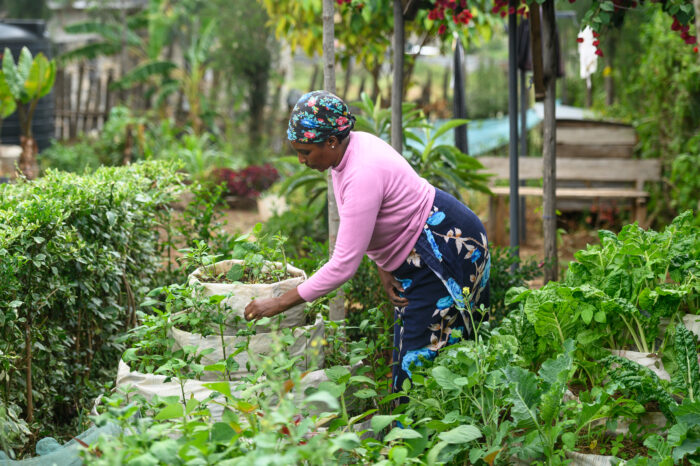Hannah’s joy: spinach, tomatoes, and money to send her children to school.
November 28, 2022No matter where we live, some things are common to all of us. Like wanting our children to grow up healthy, and with a good education.
For Hannah Wanjugo of Ngema, Kenya, that’s what spiral gardens make possible.
Watch Hannah’s story to see how spiral gardens changed her life.
Like Nancy Ng’Endo and Beatrice Wangui, Hannah spent a year learning from our local partner organization Seed Savers Network Kenya about spiral garden farming.
Before getting access to this training program, Hannah struggled to make ends meet for herself and her 4 children. Then with Kenya’s food prices climbing to their highest point in 30 years, it got harder.
But today, Hannah grows her own plentiful harvest of spinach, tomatoes and other nutritious vegetables. With 4 spiral gardens, she has enough for her family, and to sell!

Empowerment that spirals outwards: training new trainers
In our year-long spiral garden training program, Hannah learned a wide variety of agroecological practices – including seed saving, organic pest management, and building up soil fertility in her spiral gardens.
Importantly, she also got coached on how to train other women with the same skills she learned.

“I am eager to teach my community. I like going to a neighbour’s to help set up a spiral garden. I would like all my neighbours to have these gardens!”
In recognition of their valuable time and farming skills, graduates of our year-long program will receive a paid honorarium to train 15 other women in their community.
It’s a key part of our training program, allowing its impact to spiral outwards into each participant’s community.
Even in the face of climate change and a global food crisis, women farmers aren’t powerless.
They’re resourceful, innovative, and ready to lead.
With your help, we can give these women the training and support they need to learn how to build their own ecological spiral gardens.
This Giving Tuesday, will you help us raise $32,000 to support 250 women farmers like Hannah?
It costs just $128 to cover a woman’s year-long training program, or $11/month.
You can help a woman rewrite her story in 2023 by giving today.

Solutions to climate change and gender inquality can sometimes be simple. Spiral gardens are a brilliant eco-friendly and climate-resilient solution to rising food prices, land shortages, and unprecedented drought in Kenya caused by climate change.
They empower women farmers to grow an incredible amount of crops in a very small space with minimal access to land and water.

By giving to SeedChange today, you can give a woman the skills she needs to nourish her family in 2023, dramatically increase her income, and bring food security and resilience to her community.